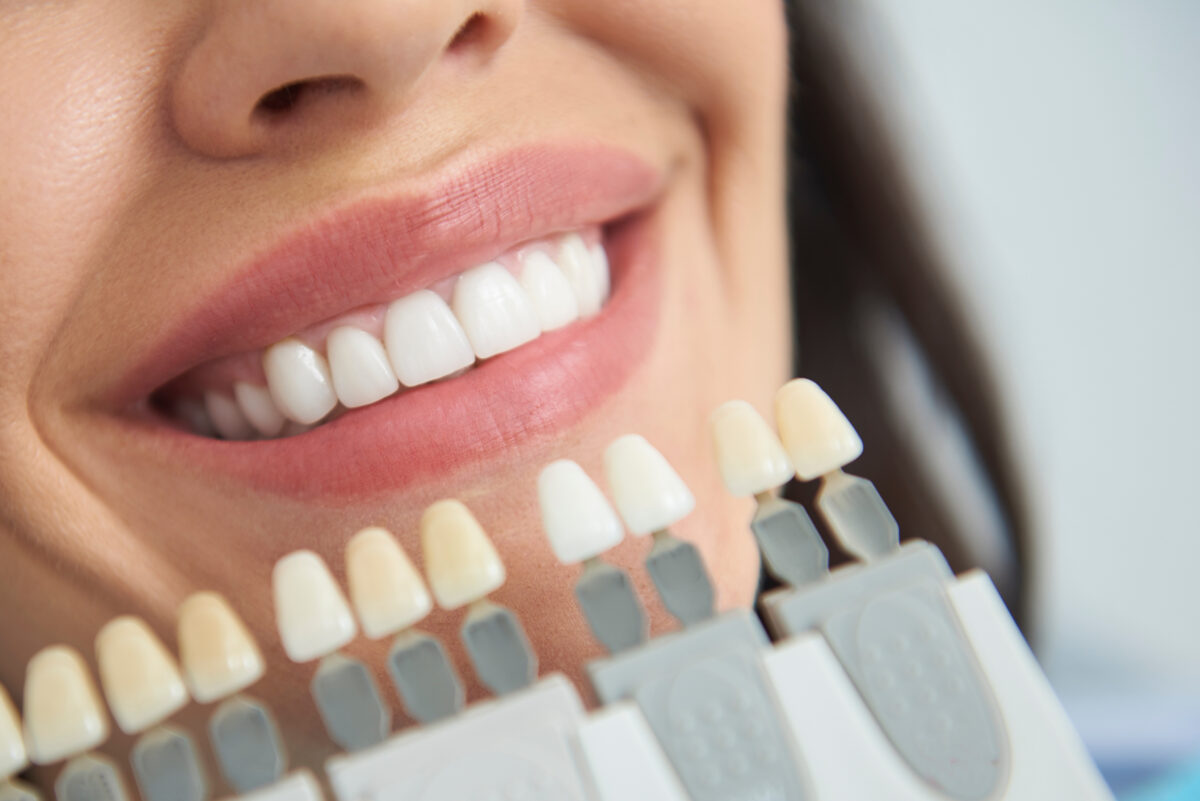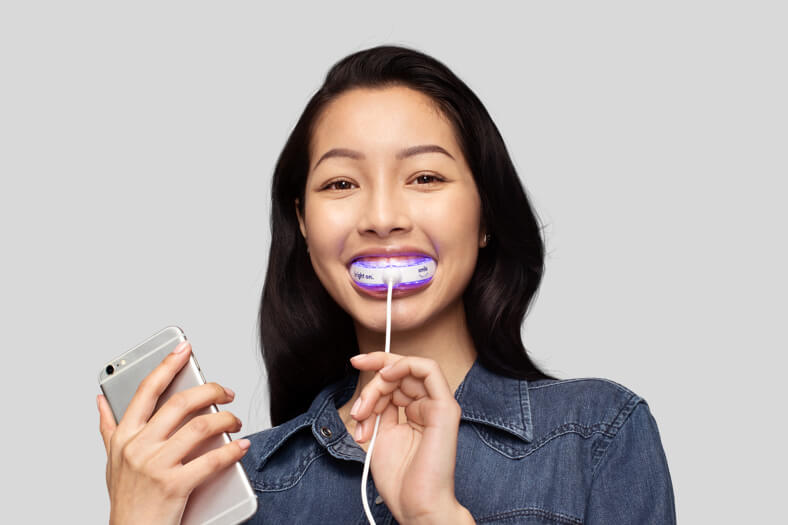Teeth whiteners can instantly upgrade your look. Because let’s face it, even if you’re a dedicated brusher and flosser, years of drinking coffee, tea, and red wine can seriously dim your smile. Unfortunately, teeth whiteners can also bring an unpleasant side effect: sensitivity.
Teeth sensitivity can show up as a dull ache. Or, you may briefly feel pain when your teeth are exposed to air or when you consume hot, cold, sweet, or sour food and drink. The discomfort is temporary, and tooth sensitivity from whitening tends to go away within a few weeks. Still, it’s not much fun.
Thankfully, you don’t have to suffer every time you whiten your teeth. We spoke with a few dental professionals to explain why sensitivity occurs with teeth whiteners and how to keep it from happening to you.
What causes sensitivity with teeth whiteners?
According to Dr. David Chen, a general and cosmetic dentist in New York, the primary whitening agent and sensitivity culprit in teeth whitening strips is hydrogen peroxide. “It’s a powerful oxidizing agent that bleaches away stains as it diffuses through your teeth,” he told Glowsly.
Registered dental hygienist Elizabeth Graves described teeth as sponges with tiny tubules leading to the inside layers. “In order to whiten, the whitening agent needs to enter the superficial layers of the teeth through these tubules,” she said. “The whitening process leaves these tubules open, leading to dental sensitivity.”
Plus, research shows that hydrogen peroxide is so potent that it can reach the tooth’s nerve within 15 minutes of application. “Need I say more about how sensitive it feels to put bleach on your tooth nerve?” Chen asked.
The intensity of the sensitivity depends on how much peroxide a teeth whitener contains. As a general rule, the teeth whiteners used by dentists have a higher concentration of hydrogen peroxide than the strips you find in a drugstore. As you might’ve guessed, the higher the concentration of hydrogen peroxide, the more sensitive your teeth will feel.
How long your teeth are exposed to the peroxide will also impact sensitivity. “That’s why your teeth don’t feel too tingly on the first day [of whitening], but by the end of the week, they’re pretty sensitive,” Chen said.
5 Tips To Avoid Teeth Whitener Sensitivity

Unfortunately, you can’t avoid sensitivity altogether when using teeth whitening products. But you can minimize the intensity by following these tips.
1. Prime your teeth
“An often-glossed-over tip for reducing sensitivity is to start using a sensitivity toothpaste like Sensodyne Pronamel two weeks before beginning whitening treatment,” Chen said. That’s roughly how long it takes for the toothpaste to build up to maximum strength.
“If you start using the toothpaste on the day of whitening, you won’t reap the full benefit of its anti-sensitivity effect,” Chen added.
2. Start with a gentle product
Instead of jumping right into maximum strength whitening products, start with something gentler. At-home teeth whiteners tend to be more forgiving than professional treatments, but you can go a step further by finding a product marketed to people with sensitive teeth.
If your teeth fare well with gentler options and you’d like to up the ante, try a stronger whitener the next time you need a refresh.
3. Skip a day of whitening
If your teeth start feeling touchy, skip a day of whitening to give them a break. “That [won’t] affect the overall result in the grand scheme of things,” Chen said. You can also try alternating days, but remember that this will prolong your treatment course.
4. Shorten your whitening sessions
Peel off the whitening strips or remove the whitening tray five to 10 minutes early. “You’ll still brighten your smile — it just may take longer to finish the full course of treatment,” Graves said.
5. Use toothpaste for quick relief
If your teeth are hurting, get instant relief by rubbing sensitivity toothpaste all over your teeth. “Let it marinate on your teeth for about 15 to 20 minutes before rinsing,” Chen said.
Leaving the toothpaste on your teeth for extended periods gives the desensitizing ingredients more time to do their work. And that means greater relief for you.
Get whiter teeth with less sensitivity
Sensitivity and teeth whiteners go hand-in-hand. But don’t think you have to grin and bear it for the sake of a whiter smile. There are many ways to minimize sensitivity with teeth whiteners, such as priming your ivories with a sensitivity toothpaste, using a gentler product, and limiting how long you wear the whitener.
If your teeth are so sensitive that it interferes with your daily life, or the sensitivity persists long after you’ve finished your whitening treatment, be sure to consult your dentist.





